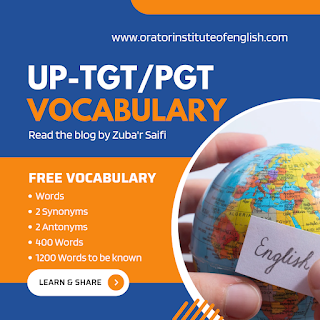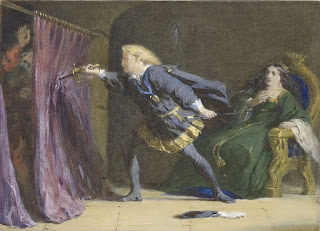Do you think your grammar is good enough to beat any exam? Let's find out. Try these 25 questions of finding errors. Tell me in comment section how many answers you ticked right. Solutions are given below after questions. Test by Zuba'r Saifi

- The students were nervous (a)/ as the exam did not begun (b)/ on time. (c)/ No error
- The teacher was scolded the students (a)/ as none of them completed (b)/ their homework on time. (c)/ No error
- Various species of birds (a)/can be saw during (b)/ the monsoon season in northern part of India. (c)/ No error
- Been it a rainy day, (a)/ they had to cancel the plan (b)/ of going to picnic. (c)/ No error
- I was got defeated (a)/ by my best friend (b)/ in the online typing speed test. (c)/ No error
- All children are (a)/ ought to be obedient (b)/ to their parents. (c)/ No error
- India should and must appeal (a) to all the countries to (b)/ declare Pakistan a terror state. (c)/ No error
- Sudeep must attended the class (a)/ regularly else he will not to be (b)/ allowed to sit in the final examinations. (c)/ No error
- You need not to worry (a)/ about the exam fees (b)/ as I have already paid it. (c)/ No error
- Mukul has (a)/ and will always (b)/ be my friend. (c)/ No error
- Three people were arrested (a)/ by the police but (b)/ one released. (c)/ No error
- Yesterday I founded (a)/ that my friend stole (b)/ the money from my purse. (c)/ No error
- In many Asian countries, people are (a)/ hung till death in public (b)/ areas in order to spread fear. (c)/ No error
- Vikas lost control over himself (a)/ as he had drunken too much (b)/ in the new year party. (c)/ No error
- The police have been trying (a)/ to find out the bus which (b)/ sunken in the lake last night. (c)/ No error
- I will remember (a)/ to post the letter (b)/ to my mother. (c)/ No error
- I will remember (a)/ posting the letter (b)/ to my mother. (c)/ No error
- Everyone knew (a)/ that he lied about not (b)/ knowing to drive a motorcycle. (c)/ No error
- The kids started to weep (a)/ loudly as they watched (b)/ their parents go. (c)/ No error
- Everyone enjoyed Sneha’s company (a)/ as she made (b)/ everyone to laugh on her jokes. (c)/ No error
- I had better (a) studied than (b)/ play with my friends. (c)/ No error
- You had better (a)/ exercise than (b)/ to run aimlessly. (c)/ No error
- He came to watch (a)/ a movie at my house and (b)/ did nothing but sleeping all day. (c)/ No error
- Having been finished (a)/ his homework, Sonu went (b)/ to play with his friends. (c)/ No error
- Walking on the empty (a)/ streets of the city, (b)/ a dog attacked and bit him. (c)/ No error
Solutions:
- The error is in part (b) of the sentence. When we use “did not” in a sentence, the verb must be in its base form. So, the verb “begun” should be replaced by “begin”.
- The error is in part (a) of the sentence. The sentence is in active voice while the use of “was scolded” represents passive voice. Thus, “was” should be omitted in order to make the sentence correct.
- The error is in part (b) of the sentence. The sentence is of passive voice, so, third form of verb should be used in the sentence. Thus, replace “saw” with “seen”.
- The error is in part (a) of the sentence. The use of “been” is incorrect and should be replaced by “being”. Please note that “been” is always used in passive sentences.
- The error is in part (a) of the sentence. We cannot use two verbs consecutively after the auxiliary verb. So, we can write part (a) as “I got defeated” or “I was defeated”.
- The error is in part (a) of the sentence. We should not use auxiliary verb and modal verb together in a sentence. In order to make the sentence correct, remove “are” from part (a) of the sentence.
- The sentence is correct. We can use two modal verbs by adding them with conjunction “and”. For example: You should and must prepare for SSC exams.
- The error is in part (a) of the sentence. All modal verbs are followed by first form of verb. So, the use of “attended” is incorrect and must be replaced by “attend”. For example: You must work hard to crack the exam.
- “Need” and “dare” are two verbs which can act as modal verbs as well as auxiliary verbs. When we use “not” with them, they act as modal verbs. So, we cannot add “s” or “es” with them. Also, we cannot use preposition “to” with them. So, the error is in part (a) of the sentence where preposition “to” has been used.
- When two different auxiliary verbs are used in a sentence, they take separate form of main verb. Like in the given sentence, “has” should be followed by third form of main verb while “will” should be followed by first form of main verb. Thus, the error is in part (a) of the sentence where we should use the verb “been” and sentence should read as “Mukul has been and will always be my best friend.”
- The error is in part (c) of the sentence where the auxiliary verb “was” is missing.
- “Find” and “found” are two different verbs. Find means to get to know while found means establish or originate (an institution or organization). The past participle form of “find” is “found” while the past participle form of “found” is “founded”. The sentence requires the verb “found”. So, the error is in part (a) of the sentence where “founded” should be replaced by “found”.
- Hang has two meanings. One meaning is “to fasten or support something at the top leaving the other parts free to move”. In this meaning, the past participles form is “hung”. The second meaning is to “kill someone, especially as punishment for a serious crime, by dropping them with a rope tied around their neck”. In this meaning, the past participle form is hanged. The error is in part (b) of the sentence where second meaning of “hang” is required. So, the correct form is “hanged” and not “hung”.
- The error is in part (b) of the sentence. “Drink” has two third forms, i.e. drunk and drunken. “Drunk” is used as a past participle of “drink” while “drunken” is used as past participle adjective. The sentence needs the verb “drunk” and not “drunken”. See the difference:
The boat has sunk.
A sunken boat.
He drunk too much last night.
I saw a drunken man.
- The error is in part (c) of the sentence where “sunk” should be used instead of “sunken”. For explanation, see solution 14.
- The sentence is correct. “Remember, forget, like etc” are some verbs which can be followed by an infinitive as well as a gerund; however, their meaning get changed each time.
- The sentence is correct. Same explanation as above.
- Error is in part (c). Please note that the verb “know” is followed by how/where/why etc” and then infinitive is used. So, part (c) must be written as “knowing how to drive a motorcycle.” See some examples:
I know how to fly a chopper.
She knows how to persuade her parents.
- The sentence is correct. “Bid, watch, behold, see, make etc” are some verbs which are followed by infinitive without “to”.
I made her obey me.
I watched the storm come and go.The error is in part (c) of the sentence where the use of “to” is incorrect. See above explanation. Part (c) must be written as “everyone laugh on her jokes”.
- “Had better, had rather, had sooner etc” are followed by first form of main verb. So, the use of “studied” is incorrect and should be replaced by “study”.
- “Had better, had rather, had sooner etc” are followed by infinitive without to. Also, if conjunction “than” is used in the sentence, it is also followed by bare infinitive. So, preposition “to” should be removed from part (c) of the sentence. For example:
I had rather stay at home than go with friends.
- If “but” is used as a preposition in a sentence and any form of “do” is used with it, then it is followed by bare infinitive. So, error is in part (c) of the sentence where gerund is used instead of bare infinitive.
- The structure for having is “having + verb (third form)” for active voice and “having + been + verb (third form)” for passive voice. The sentence is in active voice, so the use of “been” is incorrect in part (a) and should be omitted.
- The sentence gives an incorrect meaning. It gives the meaning that walking on the empty streets a dog attacked and bit him. While the sentence means to say that while he was walking on the empty streets, a dog attacked and bit him.








Comments
I got 24/25
Thanks for your support
I got 23 out of 25